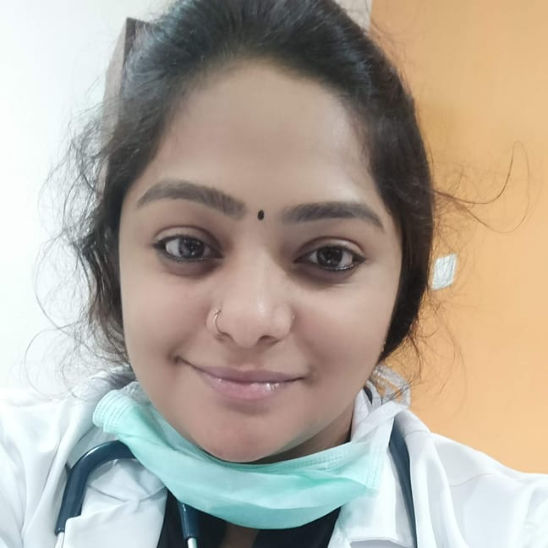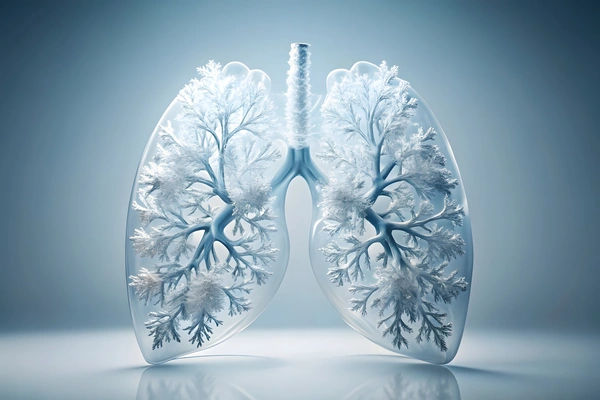10 Foods That Are Hard to Digest and What to Eat Instead?
Learn 10 hard to digest foods and the gentler swaps to support digestive health. Practical, science-backed tips to help your gut feel better.


Introduction
If your stomach often feels bloated, gassy, or uncomfortable after meals, the foods you’re choosing may be part of the problem. Some ingredients are more likely to slow stomach emptying, ferment in the gut, or irritate the digestive lining. Knowing the common hard-to-digest foods and what to eat instead can help you feel better and support digestive health. Everyone is different, so consider these ideas as a starting point and adjust to your own tolerance.
1) Fried and Fatty Foods
Why they can be tough?
• Greasy meals (like fries, fried chicken, or heavy takeout) can slow stomach emptying and relax the lower esophageal sphincter, which may trigger indigestion or heartburn in some people.
• High-fat foods can also worsen diarrhea for some.
What to eat instead?
• Choose baked, grilled, or air-fried versions of chicken, fish, or tofu.
• Use small amounts of healthy fats (olive oil, avocado) rather than deep frying.
• Balance meals with fiber-rich sides like baked sweet potato or brown rice if you tolerate them.
2) Beans and Lentils
Why they can be tough?
• Beans, chickpeas, and lentils contain certain carbohydrates (like galacto-oligosaccharides) that ferment in the gut, leading to gas and bloating in some people.
What to eat instead?
• Try smaller portions and rinse canned beans well.
• Choose easier-to-digest options like firm tofu or tempeh.
• If you’re sensitive, test lower-FODMAP options and reintroduce gradually as tolerated.
3) Cruciferous Vegetables
Why they can be tough?
• Broccoli, cauliflower, cabbage, and Brussels sprouts are nutritious but can cause gas due to their fiber type and raffinose content.
What to eat instead?
• Eat smaller portions and cook them well (steamed or roasted) to make them easier on the gut.
• Try gentler vegetables such as carrots, zucchini, spinach, bell peppers, eggplant, or peeled potatoes.
• If you enjoy crucifers, start with small amounts and increase slowly.Consult a Top General Physician
4) Dairy with Lactose
Why it can be tough?
• Many adults have some degree of lactose intolerance. Lactose (milk sugar) that isn’t digested can lead to gas, bloating, and diarrhea.
What to eat instead?
• Lactose-free milk, kefir, or yogurt with live active cultures (which can help break down lactose).
• Hard cheeses (cheddar, Parmesan) tend to be lower in lactose.
• Fortified soy, almond, or oat beverages if dairy is a problem for you.
5) Onions and Garlic
Why they can be tough?
• Onions and garlic are high in fructans (a type of FODMAP), which can ferment in the gut and trigger bloating and gas in sensitive people.
What to eat instead?
• Use the green tops of scallions, chives, or leeks for flavor.
• Try garlic-infused oil to get the aroma without the fructans.
• Cook onions well and use smaller portions if you tolerate a little.
6) Carbonated Drinks
Why can they be tough?
• The bubbles in soda, seltzer, and energy drinks add gas to the digestive tract, which can cause belching, bloating, and discomfort.
• Some carbonated drinks are caffeinated or acidic, which may worsen heartburn.
What to eat instead?
• Still water with lemon or cucumber slices.
• Herbal or ginger tea.
• If you love fizz, sip slowly and limit portions to see what you tolerate.
7) Sugar Alcohols (Sorbitol, Mannitol, Xylitol, Maltitol)
Why they can be tough?
• Sugar alcohols, commonly found in “sugar-free” gum, candies, baked goods, and some protein bars, draw water into the intestine and can cause gas or diarrhea.
What to eat instead?
• Read labels for sorbitol, mannitol, xylitol, and maltitol.
• Choose whole fruit for sweetness, or small amounts of table sugar or maple syrup if you tolerate them.
• Consider stevia or monk fruit in moderation.
8) Spicy Foods
Why they can be tough?
• Chili peppers and hot sauces contain capsaicin, which can irritate the digestive tract in some people and may worsen heartburn or diarrhea.
What to eat instead?
• Season with herbs and spices that are usually gentler, such as basil, oregano, parsley, cumin, and turmeric.
• Use milder peppers, remove seeds, and build heat gradually.
9) High-Fructose Foods and Drinks
Why can they be tough?
• Some people don’t absorb fructose well, especially in large amounts or without other food. Apples, pears, mangoes, honey, and high-fructose corn syrup in sweetened drinks can trigger gas or diarrhea.
What to eat instead?
• Try lower-fructose fruits like berries, citrus, kiwi, and ripe bananas in modest portions.
• Avoid large amounts of sweetened beverages; mix juice with water or choose unsweetened options.
10) Whole Nuts, Seeds, and Popcorn (in large amounts)
Why can they be tough?
• These foods are high in insoluble fiber. While fiber is healthy, larger portions can sometimes aggravate bloating or discomfort in people with sensitive digestion or active gastrointestinal symptoms.
• Note: For most people, nuts and seeds do not cause diverticulitis, but they can still be symptom triggers for some individuals.
What to eat instead?
• Choose smooth nut or seed butters instead of whole forms.
• Soak chia or grind flax to make them gentler.
• Build tolerance slowly, and pair higher-fiber foods with adequate fluids.
Gentle Cooking and Eating Habits That Help
• Keep portions moderate: Large meals are harder to digest than smaller, balanced ones.
• Cook to soften fiber: Steaming, stewing, and roasting can make vegetables easier on the gut.
• Chew thoroughly: Digestion starts in the mouth. Slower eating reduces swallowed air and bloating.
• Stay hydrated: Fluids help fiber move through your system.
• Add movement: Light walks after meals can aid digestion.
• Keep a food and symptom journal: Track what you eat and how you feel to spot patterns.
• Reintroduce foods: If you eliminate a food, re-test later in small amounts so you don’t miss out on nutrients you might tolerate.
When to See a Healthcare Professional?
• Ongoing pain, unintended weight loss, blood in stool, persistent diarrhea, vomiting, or trouble swallowing should be evaluated promptly.
• If you suspect lactose intolerance, celiac disease, or irritable bowel syndrome, ask your clinician about testing and a referral to a registered dietitian for a tailored plan.
Putting It All Together
Hard-to-digest foods affect people differently. Some can enjoy beans or cruciferous vegetables without issues; others feel better with small portions or gentler swaps. By making simple changes, switching to lactose-free dairy, cooking veggies well, choosing leaner proteins, and avoiding excess carbonation and sugar alcohols, you can support digestive health while still enjoying a varied, satisfying diet.Consult a Top General Physician
Consult a Top General Physician

Dr. Swarna Deepak K
General Physician/ Internal Medicine Specialist
20 Years • MBBS: MD (Internal Medicine) MRCP (UK), EDIC (European Diploma in Critical Care), IDCCM, IFCCM (Critical Care), FID (Royal Liverpool Academy)
Hyderabad
Apollo Hospitals Jubilee Hills, Hyderabad
(425+ Patients)

Dr Aakash Andgi
General Physician/ Internal Medicine Specialist
9 Years • MBBS MD
Bengaluru
Apollo Clinic, JP nagar, Bengaluru

Dr. Dhanraj K
General Physician/ Internal Medicine Specialist
25 Years • MBBS, MD Internal Medicine - Osmania Medical College, Hyderabad
Hyderabad
Apollo Hospitals Jubilee Hills, Hyderabad
(400+ Patients)

Dr. Sudhashree R
General Physician/ Internal Medicine Specialist
13 Years • MBBS, MRCEM
Bengaluru
Apollo Clinic, JP nagar, Bengaluru

Dr. Divyashree K
General Physician/ Internal Medicine Specialist
5 Years • MBBS
Bengaluru
Apollo Clinic, JP nagar, Bengaluru
Consult a Top General Physician

Dr. Swarna Deepak K
General Physician/ Internal Medicine Specialist
20 Years • MBBS: MD (Internal Medicine) MRCP (UK), EDIC (European Diploma in Critical Care), IDCCM, IFCCM (Critical Care), FID (Royal Liverpool Academy)
Hyderabad
Apollo Hospitals Jubilee Hills, Hyderabad
(425+ Patients)

Dr Aakash Andgi
General Physician/ Internal Medicine Specialist
9 Years • MBBS MD
Bengaluru
Apollo Clinic, JP nagar, Bengaluru

Dr. Dhanraj K
General Physician/ Internal Medicine Specialist
25 Years • MBBS, MD Internal Medicine - Osmania Medical College, Hyderabad
Hyderabad
Apollo Hospitals Jubilee Hills, Hyderabad
(400+ Patients)

Dr. Sudhashree R
General Physician/ Internal Medicine Specialist
13 Years • MBBS, MRCEM
Bengaluru
Apollo Clinic, JP nagar, Bengaluru

Dr. Divyashree K
General Physician/ Internal Medicine Specialist
5 Years • MBBS
Bengaluru
Apollo Clinic, JP nagar, Bengaluru
More articles from General Medical Consultation
Frequently Asked Questions
1) Are these foods “bad” for everyone?
No. Many of these foods are nutritious and tolerated by plenty of people. If you have sensitive digestion or a condition like IBS, GERD, or lactose intolerance, you may need to adjust portion sizes, preparation methods, or choose alternatives.
2) Do I need to avoid beans and cruciferous vegetables completely?
Not necessarily. Rinsing canned beans, cooking vegetables well, and starting with small portions can improve tolerance. Some people do well with certain types (for example, lentils over chickpeas, or cooked broccoli over raw). A food/symptom journal helps.
3) Is a low-FODMAP diet right for me?
A low-FODMAP approach can reduce gas and bloating for some people with IBS, but it is meant to be a short-term, structured trial with reintroduction, ideally guided by a registered dietitian. It is not a permanent list of “good” and “bad” foods.
4) Do digestive enzymes or probiotics help?
Some people benefit from lactase for lactose intolerance or from certain probiotic strains for IBS. Results vary. Talk with your clinician before starting supplements, especially if you have medical conditions or take medications.
5) How can I make meals easier to digest right now?
• Choose smaller meals more often.
• Cook foods until tender and peel tough skins.
• Limit very greasy, spicy, or highly carbonated options.
• Drink water throughout the day.
• Add gentle movement after eating, like a 10–15 minute walk.


_3.webp)

